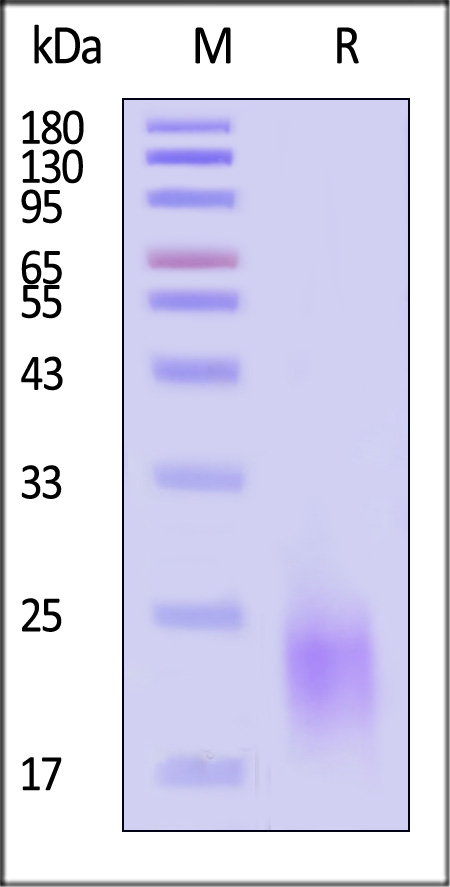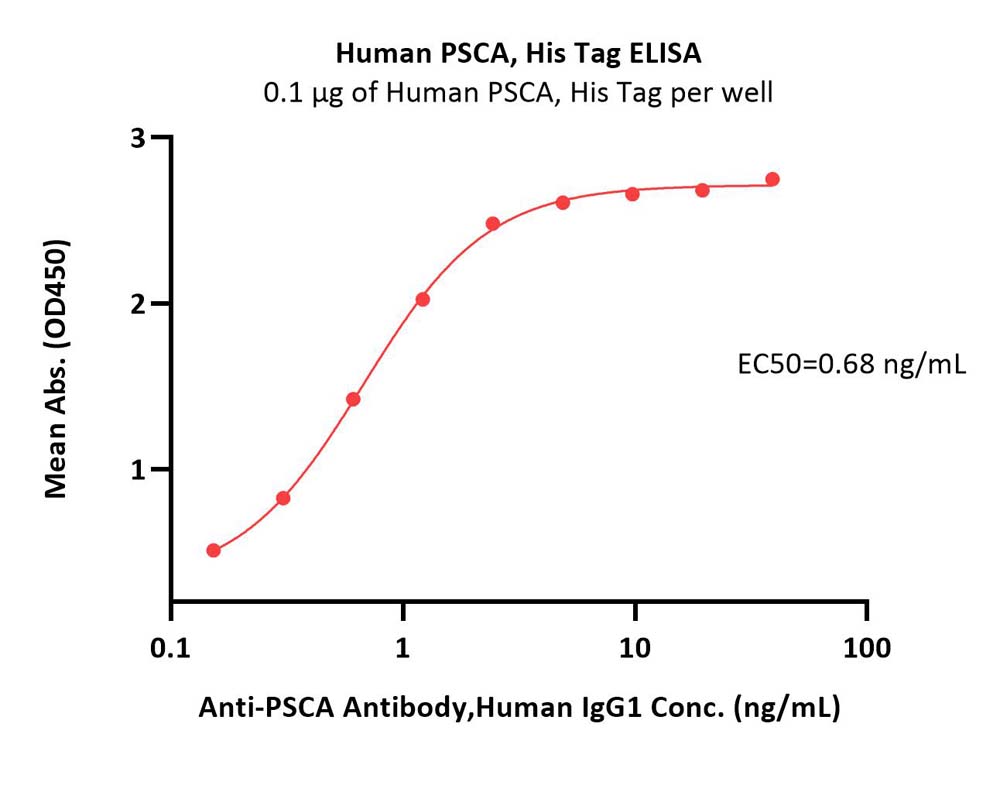分子别名(Synonym)
PSCA,UNQ206,PRO232
表达区间及表达系统(Source)
Human PSCA, His Tag (PSA-H52H6) is expressed from human 293 cells (HEK293). It contains AA Leu 12 - Ser 86 (Accession # O43653-1).
Request for sequence
蛋白结构(Molecular Characterization)

This protein carries a polyhistidine tag at the C-terminus.
The protein has a calculated MW of 10.4 kDa. The protein migrates as 17-25 kDa when calibrated against Star Ribbon Pre-stained Protein Marker under reducing (R) condition (SDS-PAGE) due to glycosylation.
内毒素(Endotoxin)
Less than 1.0 EU per μg by the LAL method.
纯度(Purity)
>90% as determined by SDS-PAGE.
制剂(Formulation)
Lyophilized from 0.22 μm filtered solution in PBS, pH7.4 with trehalose as protectant.
Contact us for customized product form or formulation.
重构方法(Reconstitution)
Please see Certificate of Analysis for specific instructions.
For best performance, we strongly recommend you to follow the reconstitution protocol provided in the CoA.
存储(Storage)
For long term storage, the product should be stored at lyophilized state at -20°C or lower.
Please avoid repeated freeze-thaw cycles.
This product is stable after storage at:
- -20°C to -70°C for 12 months in lyophilized state;
- -70°C for 3 months under sterile conditions after reconstitution.
电泳(SDS-PAGE)

Human PSCA, His Tag on SDS-PAGE under reducing (R) condition. The gel was stained with Coomassie Blue. The purity of the protein is greater than 90% (With Star Ribbon Pre-stained Protein Marker).
活性(Bioactivity)-ELISA

Immobilized Human PSCA, His Tag (Cat. No. PSA-H52H6) at 1 μg/mL (100 μL/well) can bind Anti-PSCA Antibody,Human IgG1 with a linear range of 0.2-1 ng/mL (QC tested).
Protocol
活性(Bioactivity)-FACS

2e5 of anti-PSCA CAR-293 cells were stained with 100 μL of 3 μg/mL of Human PSCA, His Tag (Cat. No. PSA-H52H6) and negative control protein respectively, washed and then followed by PE anti-His Tag antibody and analyzed with FACS (Routinely tested).
Protocol
背景(Background)
The Prostate stem cell antigen (PSCA) is a glycosylphosphatidylinositol (GPI)-anchored protein, plays an important role in tumorigenesis. The prostate stem cell antigen (PSCA) gene, which encodes a prostate-specific antigen (PSA), was identified as a gene involved in cell adhesion and proliferation. PSCA may be involved in the regulation of cell proliferation. Has a cell-proliferation inhibition activity in vitro. May act as a modulator of nicotinic acetylcholine receptors (nAChRs) activity. In vitro inhibits nicotine-induced signaling probably implicating alpha-3:beta-2- or alpha-7-containing nAChRs.























































 膜杰作
膜杰作 Star Staining
Star Staining











